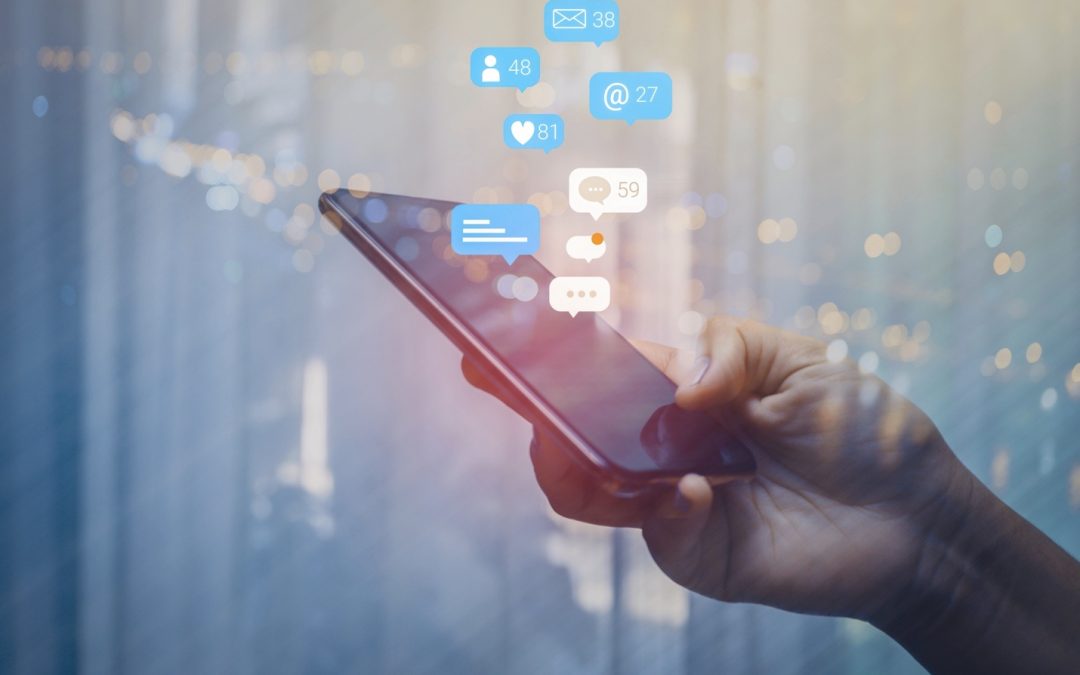Social media has become a part of our daily lives, connecting us with friends and family. However, as our screen time increases, concerns about the impact of social media on mental health have gained prominence.
The Pros: Positive Effects of Social Media on Mental Health
- Social Interaction: A major benefit of social media is its ability to connect with family and friends. In an increasingly globalized world, platforms like Facebook, Instagram, and Twitter allow individuals to maintain relationships across vast distances. People who may be isolated, homebound, or struggling with social anxiety can particularly benefit from them.
- Support Communities: Social media provides a platform for people to find and connect with others who share similar interests, struggles, or conditions. Support groups on platforms like Reddit or Facebook can be invaluable for individuals dealing with health issues, mental health challenges, or lifestyle changes.
- Education and Awareness: Social media has played a vital role in spreading awareness about mental health. It has allowed organizations and individuals to share information, resources, and stories, reducing stigma and encouraging open conversations about mental health.
- Positive Content: While social media often gets a bad rap for being a source of negativity, it can also be a place for uplifting and inspiring content. Many influencers and creators use platforms like Instagram and YouTube to share motivational and positive messages.
The Cons: Negative Effects of Social Media on Mental Health
- Comparison and Envy: Scrolling through carefully curate and filtered images of other people’s lives can lead to feelings of inadequacy, jealousy, and low self-esteem. People tend to present the best aspects of their lives on social media, which can foster unrealistic expectations.
- Cyberbullying: The anonymity provided by social media platforms sometimes encourages hurtful behavior. Cyberbullying can have severe consequences on the mental health of victims, leading to anxiety, depression, and, in some cases, self-harm.
- Addiction and Time Drain: Excessive use of social media can lead to addiction and a significant time drain. The constant need to check notification and stay updated can lead to decreased productivity and hinder real-world relationships.
- Fear of Missing Out (FOMO): Seeing others enjoying social events or achievements can lead to FOMO, causing feelings of isolation and loneliness in those who may not be as socially active.
- Filter Bubbles and Polarization: Social media algorithms tend to show content that aligns with your existing beliefs and interests, creating filter bubbles. This can contribute to a more polarize society and a lack of exposure to diverse perspectives, potentially impacting mental health through increased stress and anxiety due to contentious online debates.

Balancing Act: Tips for Navigating Social Media’s Impact on Mental Health
- Mindful Use: Be conscious of your social media use. Set limits on screen time and choose to engage with platforms that make you feel positive and connected, rather than anxious or inferior.
- Curate Your Feed: Unfollow or mute accounts that consistently make you feel bad about yourself or your life. Follow accounts that inspire, educate, and entertain you in a positive way.
- Engage Authentically: Use social media as a tool for genuine connection. Reach out to friends and family, engage in meaningful conversations, and use the platforms to strength your real-world relationships.
- Digital Detox: Consider taking occasional breaks from social media to reset and refresh. A digital detox can provide clarity and allow you to focus on other aspects of your life.
- Report and Block: If you encounter cyberbullying or harmful content, report and block the responsible parties. Ensure your online experience remains a safe and supportive space.
Social media is a double-edged sword, offering both benefits and drawbacks to our mental health. The impact of social media on mental health largely depends on how we use it. By being mindful and making conscious choices about our engagement, we can harness the positive aspects of social media while minimizing its negative effects. Ultimately, striking a balance is key to reaping the benefits of social media without compromising our mental well-being.

